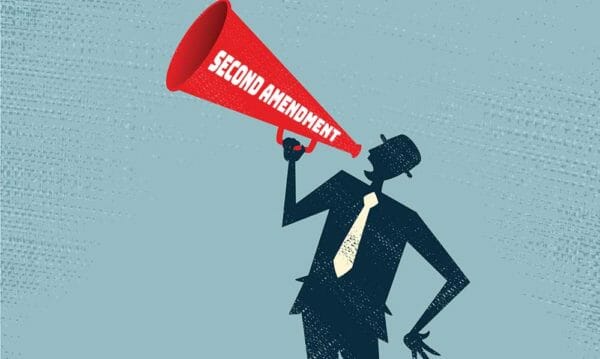
In a case that strikes at the heart of the First Amendment, the U.S. Supreme Court has agreed to hear the National Rifle Association’s allegations against a former New York state official. The NRA asserts that their free speech rights were trampled by coercive tactics intended to dissuade companies from associating with the gun rights organization.
The case, NRA v. Vullo, centers on Maria Vullo, the past superintendent of the New York State Department of Financial Services (DFS). After the tragic Parkland school shooting, Vullo allegedly leveraged her position to warn banks and insurance companies against facilitating business for the NRA, branding such associations a “reputational risk.”
However, the Second Circuit sided with Vullo, prompting the NRA to seek a hearing at the nation’s highest court.
Eugene Volokh, reporting on the day of the announcement, summarized the gravity of the question before the court: Does a government regulator have the right to intimidate businesses from engaging with controversial advocates due to either a personal vendetta or societal backlash? The Supreme Court’s decision to tackle this question could redefine the boundaries of free speech and government influence.
Although the Second Circuit ruled in favor of Vullo, deeming her actions constitutional, the NRA’s petition raises red flags about the potential for state officials to ostracize political adversaries financially. It argues that the Second Circuit’s decision, if upheld, could dangerously empower officials to carry out politically motivated punitive campaigns against groups from any sector, whether gun rights, environmental, or pro-choice organizations.
The implications of this case resonate with a similar issue in Murthy v. Missouri, which examines the Biden administration’s attempts to combat alleged misinformation spread via social media platforms. This parallel suggests a broader examination of how government agencies interact with and possibly exert undue influence over private sector speech and affiliations.
The NRA’s legal team has emphasized the severity of the allegations against Vullo. They accuse her of conducting clandestine threats, exerting selective enforcement, and using public policy to manipulate the market against the NRA. These tactics, they argue, were not just heavy-handed but fundamentally unconstitutional, violating the standards set by precedents like Bantam Books v. Sullivan.
The Second Circuit’s stance appears to rest on the notion of contemporary corporate social responsibility and the financial implications of public sentiment following incidents like the Parkland shooting. Yet, the NRA’s narrative, supported by an amicus brief from the ACLU at the district court level, posits that Vullo’s maneuvers represent a direct assault on free speech rights.
This case, according to its proponents, is a bellwether for the health of the First Amendment in an era where its robustness is allegedly being tested.
As the Supreme Court prepares to hear the arguments, both sides brace for a verdict that could have sweeping consequences for government-speech relations.
The nation watches as the Supreme Court enters the fray to delineate the fine line between government oversight and unconstitutional coercion. And while the outcome is uncertain, one thing remains clear: the stakes for the First Amendment could not be higher.
from https://ift.tt/QFO5gC0
via IFTTT

No comments:
Post a Comment